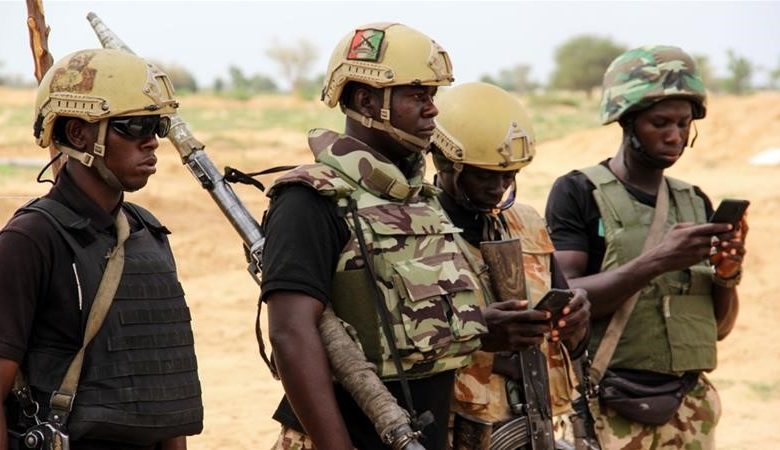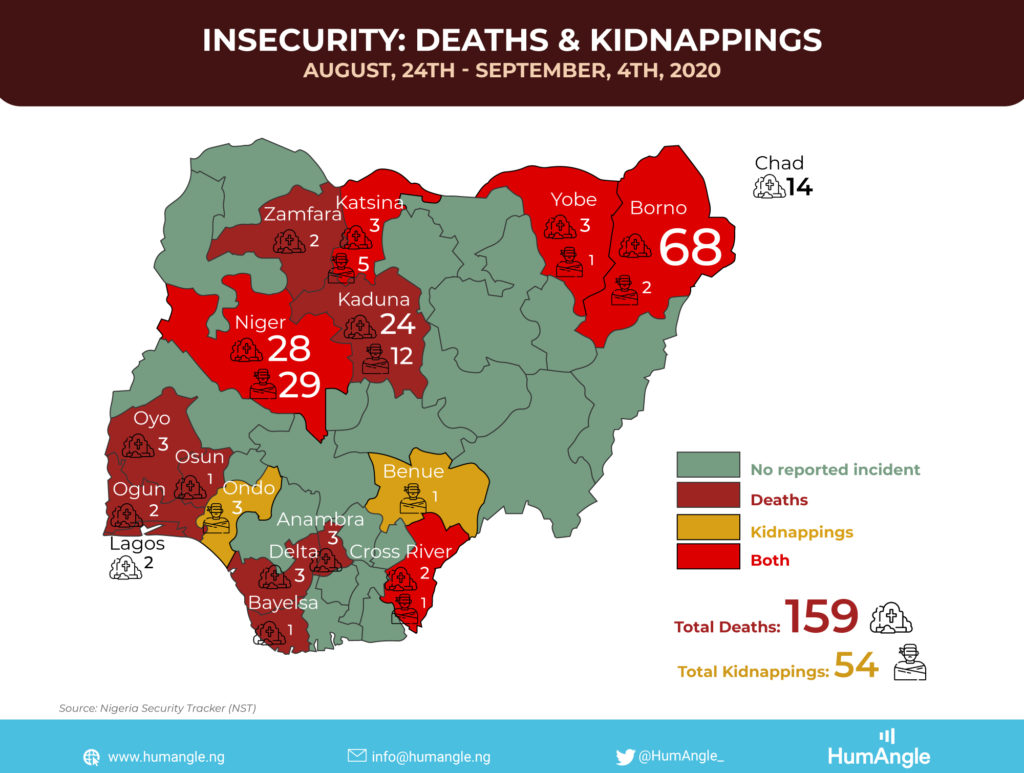159, Including 20 Soldiers, Lose Lives To Insecurity In 2 Weeks

Analysis of data collated by the Nigeria Security Tracker shows that 159 Nigerians were killed while 54 others were abducted between Monday, August 24, and Friday, September 4, 2020.
Among the casualties were 20 members of the Nigerian Army, 57 civilians, and one councillor (politician).
Fifty-one (51) suspected members of Boko Haram, three suspected kidnappers, two sectarian actors and one robber were also killed during the period, the data showed.
Borno State recorded the highest number of fatalities with 68, followed by Niger State (28) and Kaduna (24).
Fourteen (14) people were killed in the Lake Chad area, three each in Anambra, Delta, Katsina, Oyo, and Yobe states, two each in Cross River, Lagos, Ogun, and Zamfara, and one each in Bayelsa and Osun states.
Twenty-nine (29) people were kidnapped in Niger, 12 in Kaduna, five in Katsina, three in Ondo, two in Borno, one each in Benue, Cross River and Yobe states.
On the evening of Tuesday, September 1, at least nine soldiers were killed by members of the Islamic State West Africa Province (ISWAP) in Magumeri Local Government Area, 50km from Maiduguri, where they took over the military post. The insurgent group, ISWAP, later stated that the dead soldiers were 10.
The following morning, insurgents from the same group killed 10 special force soldiers in Garin Giwa, a village in Borno’s Kukawa Local Government Area, and wounded several others.
That same Wednesday, 22 people, including 17 vigilantes and one policeman, were killed by gunmen in two communities in Kagara and Dukku in Rafi Local Government Area, Niger State. The criminals also abducted 20 people on the occasion.
The Nigerian Governors’ Forum in August appealed to the Federal Government to provide bailout funds to enable state governments to tackle security challenges within their areas of control and met with the president over the challenges.
“The governors also pointed to the problem of coordination among military and security chiefs and played up their own security roles which included one billion dollars they allowed the president to withdraw from the Excess Crude Account for weapons procurement two years ago.
“They, therefore, urged the president to consider a “bailout” for security for the states in view of the enormity of the resources they now expend in support of the military and the police,” presidential spokesperson Garba Shehu recounted from the governors’ meeting with President Muhammadu Buhari and the service chiefs.
Support Our Journalism
There are millions of ordinary people affected by conflict in Africa whose stories are missing in the mainstream media. HumAngle is determined to tell those challenging and under-reported stories, hoping that the people impacted by these conflicts will find the safety and security they deserve.
To ensure that we continue to provide public service coverage, we have a small favour to ask you. We want you to be part of our journalistic endeavour by contributing a token to us.
Your donation will further promote a robust, free, and independent media.
Donate HereStay Closer To The Stories That Matter





